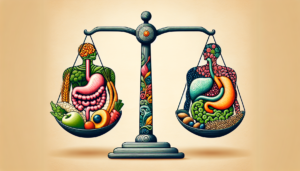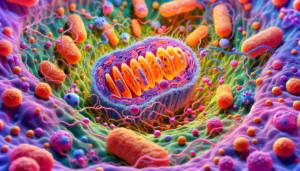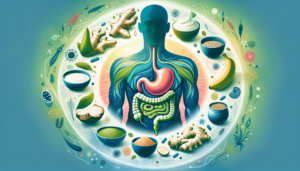Mindful Living: Non-GMO Practices to Reduce Anxiety
Mindful Living: Non-GMO Practices to Reduce Anxiety
Understanding Mindful Living
Mindful living is a holistic approach to life that emphasizes being present in each moment. This practice encourages individuals to focus on their thoughts, feelings, and experiences without judgment. By cultivating mindfulness, individuals develop greater emotional resilience and reduce anxiety. A critical component of mindful living involves mindful eating, particularly a diet that favors non-GMO (genetically modified organism) foods. The connection between what we consume and our mental well-being is profound. By integrating non-GMO practices into daily routines, individuals can create a nurturing environment for their minds and bodies.
The Science of Anxiety
Anxiety is often characterized by overwhelming feelings of worry, fear, and apprehension. Stressors can range from daily responsibilities to significant life changes. Research shows that anxiety disorders can lead to physical symptoms, such as increased heart rate, muscle tension, and fatigue. Moreover, the foods we consume can directly impact our mental health. Diets high in processed foods and GMOs have been linked to increased rates of anxiety and depression, while whole, non-GMO foods can support a balanced mood.
Benefits of Non-GMO Foods
Nutrient-Rich Diet
Non-GMO foods are often fresher and more nutritious. They generally lack synthetic additives that can disrupt gut health. A healthy digestive system is closely linked to mental health due to the gut-brain connection. Consuming non-GMO options—such as fruits, vegetables, and whole grains—helps provide essential nutrients such as omega-3 fatty acids, vitamins, and minerals which contribute to lower anxiety levels.
Balanced Hormones
Hormonal balances affect mood regulation. Non-GMO foods tend to have less impact on hormone levels compared to their genetically modified counterparts. For instance, certain pesticides used on GMO crops can disrupt endocrine functions. By choosing non-GMO foods, individuals can help maintain hormonal balance, thereby reducing anxiety.
Avoiding Chemical Additives
Many GMOs are treated with herbicides and pesticides that might contribute to anxiety by exacerbating inflammation in the body. Non-GMO foods usually avoid these harmful chemical additives, reducing potential toxicity and promoting overall well-being.
Mindful Eating Practices
Mindful eating encourages individuals to pay full attention to the experience of eating, making it a beneficial practice in managing anxiety. Here are several steps to incorporate mindful eating with a focus on non-GMO foods:
1. Choose Whole Foods
Opt for whole, non-GMO foods whenever possible. This includes fresh fruits and vegetables, legumes, nuts, and whole grains. By focusing on whole foods, you’re not only fueling your body with essential nutrients, but you’re also taking a step toward reducing anxiety.
2. Prepare Your Meals
Cooking at home allows for greater control over the ingredients used. Choose organic and non-GMO ingredients to prepare healthy meals that can enhance your mood. Not only does preparation become a mindful practice, but it also reinforces a connection to what you consume.
3. Engage Your Senses
While eating, focus on the colors, textures, and flavors of your food. This sensory engagement can be grounding and can serve as a formidable distraction from anxious thoughts. Take time to smell your food, appreciate its presentation, and enjoy the act of chewing slowly.
4. Limit Distractions
Avoid the use of smartphones, televisions, and computers during meals. By eating mindfully, you allow yourself to fully experience your food, which can lead to better digestion and satisfaction. This practice not only enhances your relationship with food but also reduces stress.
Non-GMO Choices to Alleviate Anxiety
Incorporating specific non-GMO foods into your diet can help manage anxiety. Here are some categories to consider:
1. Leafy Greens
Spinach, kale, and swiss chard are rich in magnesium, which has been shown to lower anxiety levels. These greens are also high in antioxidants, supporting overall brain health.
2. Fatty Fish
Salmon and sardines are excellent sources of omega-3 fatty acids, crucial for brain function and mood stabilization. They contribute to the production of serotonin, a neurotransmitter that helps regulate mood.
3. Berries
Blueberries, strawberries, and raspberries are packed with antioxidants and vitamins, improving cognitive function and reducing oxidative stress—two critical factors associated with anxiety.
4. Nuts & Seeds
Almonds, walnuts, and flaxseeds are great sources of vitamin E and omega-3 fatty acids. Incorporating these into your diet can improve brain health and keep anxiety levels in check.
5. Herbal Teas
Chamomile, lavender, and lemon balm teas can provide a calming effect. These herbs have been shown to reduce symptoms of anxiety and promote relaxation.
Lifestyle Practices for Anxiety Reduction
Alongside dietary changes through non-GMO food choices, other lifestyle practices can significantly impact anxiety levels as part of mindful living.
1. Regular Physical Activity
Exercise releases endorphins, which can elevate mood and alleviate stress. Engaging in physical activity—such as walking, running, or yoga—improves cognitive function and helps manage anxiety more effectively.
2. Meditation and Deep Breathing
Meditation practices, such as mindfulness meditation or deep breathing exercises, promote relaxation and focus. Practicing these exercises for a few minutes daily can create a sense of calm and reduce anxiety.
3. Adequate Sleep
Sleep is crucial for mental well-being. Lack of sleep can heighten anxiety levels. Establishing a consistent sleep schedule and creating a restful environment can improve sleep quality and reduce anxiety.
4. Limiting Caffeine and Alcohol
Caffeine and alcohol can exacerbate anxiety symptoms. Minimizing intake can help stabilize mood levels. Opt for herbal teas or non-caffeinated beverages as soothing alternatives.
Building a Supportive Environment
Creating a supportive environment is key to practicing mindful living and reducing anxiety. Surround yourself with positive influences, whether they are friends, family, or online communities. Seek out supportive groups that promote mental well-being through non-GMO practices and mindful living.
Conclusion of the Practices
Incorporating mindful living through non-GMO practices can create a solid foundation for managing anxiety. From dietary choices to lifestyle habits, every aspect contributes to overall mental health. Through awareness and intentional practices, individuals can lead fulfilling and anxiety-free lives. The synergy between mindful living and non-GMO selections enhances emotional resilience and supports a thriving, balanced existence.








